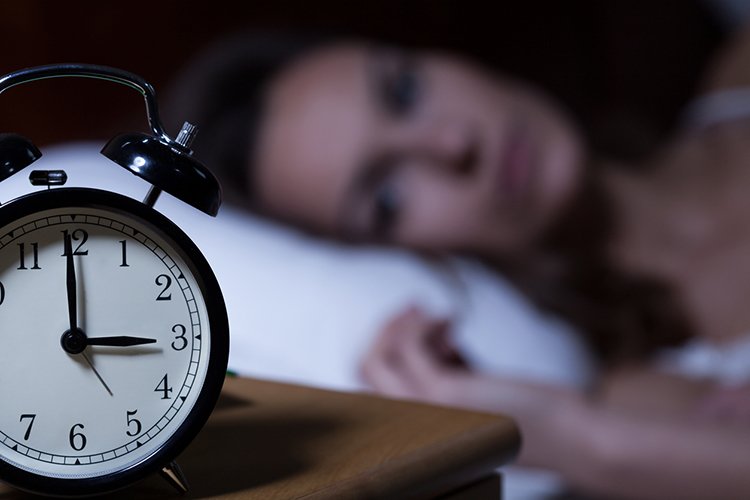Overview:
Sleep, a fundamental component of human existence, has become progressively undermined in contemporary times. The emergence of technology and the highly interconnected world we inhabit have had a substantial influence on our sleep patterns, resulting in an increase in insomnia and sleep deprivation. This essay will analyze the origins and outcomes of sleep deprivation in contemporary society, evaluate the impact of technology on sleep disruption, assess the health ramifications of persistent lack of sleep, and suggest approaches for managing insomnia in an excessively interconnected world.
Factors contributing to insomnia in contemporary society:
1. Technology and Screen Time:
The extensive utilization of electronic gadgets such as cellphones, tablets, and laptops has become an omnipresent aspect of contemporary existence. Nevertheless, the blue light emitted by these devices has the potential to disturb the body’s circadian rhythm, inhibiting the secretion of melatonin, a hormone responsible for regulating sleep. The correlation between excessive screen time prior to bedtime and difficulties in falling asleep as well as diminished sleep quality has been shown.
2. The perpetual availability of social media platforms:
The abundance of information accessible online have fostered a society characterized by uninterrupted connectedness. Individuals encounter difficulty in disengaging from their electronic gadgets, resulting in heightened levels of tension and worry, which can disrupt the quality of their sleep. The phenomenon known as the fear of missing out (FOMO) and the societal expectation to constantly be informed can lead to increased levels of alertness, making it challenging to unwind and relax before going to sleep.
3. Work Demands and Work-Life Balance:
The contemporary labor force is frequently defined by extended work hours, stringent time constraints, and elevated levels of work-induced anxiety. A significant number of persons often engage in the practice of reviewing work emails or replying to messages until late hours, therefore causing a lack of distinction between their professional and personal lives. The drive to excel and the apprehension of lagging behind might disturb sleep habits and contribute to persistent sleep deficiency.
Effects of Insomnia:
1. Cognitive Impairment:
Sleep is essential for optimal cognitive function, which encompasses processes such as memory consolidation, decision-making, and problem-solving. Research has demonstrated that long-term lack of sleep can negatively impact cognitive abilities, resulting in problems with focus, memory, and reduced efficiency.
2. Mood Disorders:
Insufficient sleep can exert a substantial influence on the regulation of mood, heightening the vulnerability to mood disorders such as despair and anxiety. Sleep deprivation disturbs the equilibrium of neurotransmitters in the brain, resulting in increased emotional sensitivity and irritability. Persistent insomnia has also been associated with heightened susceptibility to bipolar illness and other mood-related disorders.
3. Physical Health Problems:
Sleep plays a crucial role in the body’s ability to repair and regenerate itself, which includes important functions such as immune response, metabolism, and cardiovascular health. Persistent lack of sleep has been linked to a higher likelihood of developing obesity, diabetes, heart disease, and hypertension. Moreover, insufficient sleep diminishes the effectiveness of the immune system, rendering individuals more vulnerable to infections and disorders.
Managing Sleeplessness in an Overly Connected Society:
1. Implementing a Sleep Regimen:
Developing a regular sleep timetable can assist in regulating the body’s circadian rhythm and enhancing the quality of sleep. Establish a consistent sleep and wake-up time, including weekends, to foster a feeling of stability and regularity. Refrain from taking daytime naps, as they can interfere with your sleep patterns at night.
2. Reducing Screen Time Prior to Sleep:
Decrease the amount of time spent using electronic devices at least one hour before going to bed in order to mitigate the effects of blue light on the generation of melatonin. Instead of engaging in mindless scrolling through social media or watching television, opt for more calming and rejuvenating hobbies such as reading, practicing meditation, or engaging in moderate stretching exercises.
3. Establishing an Environment Conducive to Restful Sleep:
Strategically arrange your bedroom to foster a sense of relaxation and comfort. Ensure that the room is devoid of light, noise, and warmth, and acquire a high-quality mattress and pillows for optimal comfort. It is advisable to utilize white noise machines or earplugs to effectively eliminate any disruptive noises that could potentially disturb sleep.
4. Engaging in stress management techniques:
Integrate stress-reduction methods into your daily schedule to enhance relaxation and enhance the quality of your sleep. Possible options for relaxation techniques may involve practices such as deep breathing exercises, gradual muscular relaxation, yoga, or mindfulness meditation. Discover activities that promote relaxation and reduce tension before to going to bed.
5. Consulting a healthcare professional when necessary:
If insomnia persists despite attempting self-help techniques, it may be advisable to seek assistance from a healthcare expert. A medical professional or sleep specialist can assess your sleep patterns and suggest suitable treatment choices, such as cognitive-behavioral therapy for insomnia (CBT-I) or medication, if needed.
In conclusion:
Insomnia has been a widespread problem in contemporary times, driven by advancements in technology, work obligations, and societal expectations. Persistent sleep deficiency not only hampers cognitive function and mood but also elevates the likelihood of severe health complications. Nevertheless, by comprehending the underlying factors of sleep deprivation and applying techniques to enhance sleep habits, individuals can effectively manage insomnia in a highly interconnected society and give precedence to their general health and well-being. It is imperative to acknowledge the significance of sleep and actively work to safeguard and prioritize it in our everyday routines.

